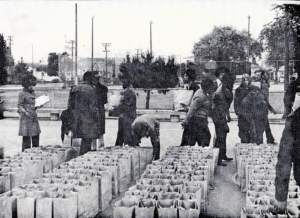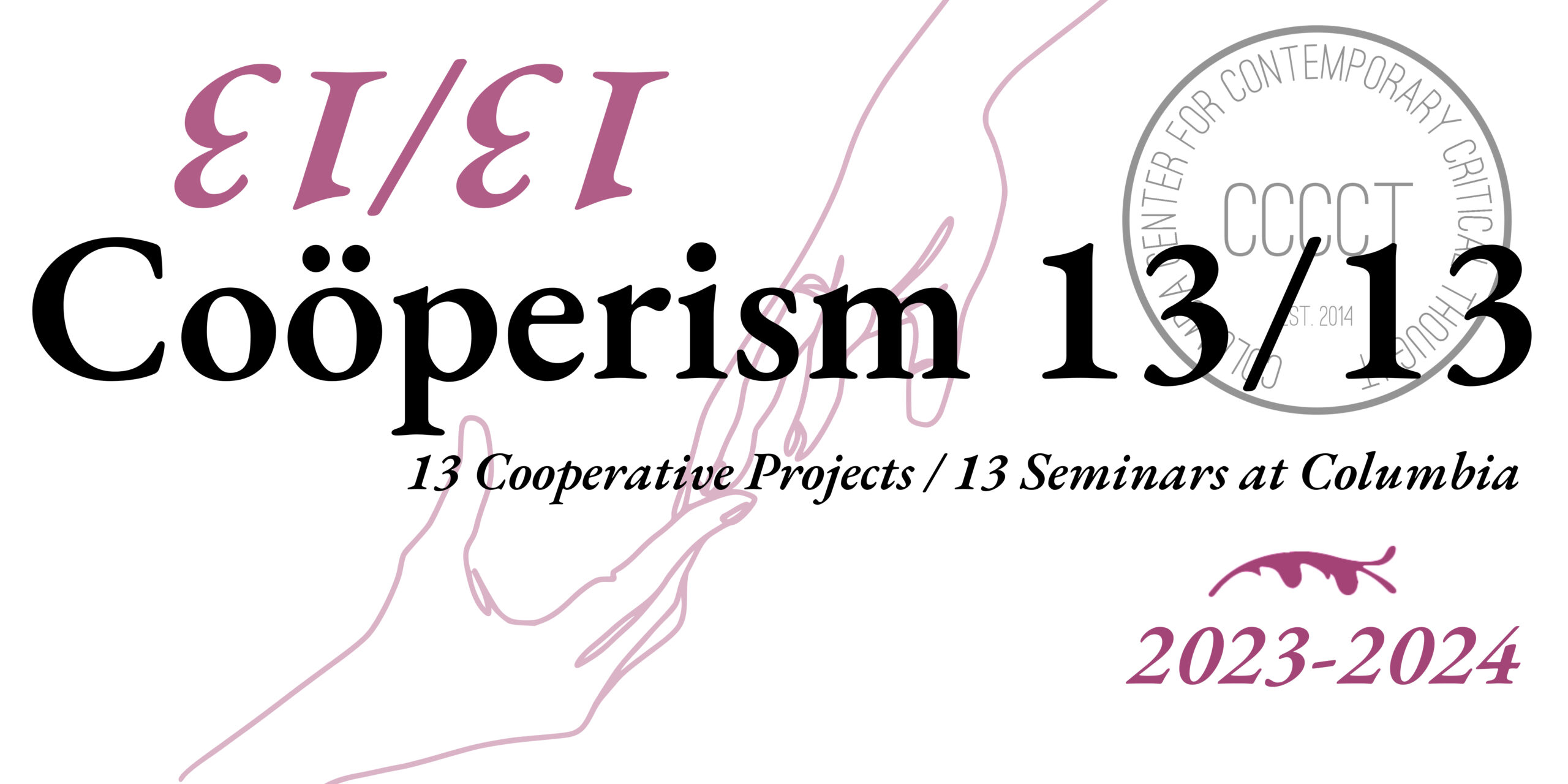Flores Forbes, Jamal Joseph, Suzanne Cope, and Bernard E. Harcourt
discuss the Black Panther Party and Community-Service Cooperative programs
Wednesday, February 21, 2024
Columbia University

The Black Panther Party organized free grocery giveaways at San Pablo Park in Berkeley. Photo courtesy It’s About Time Archives
When we tell the history of the Black Panther Party for Self-Defense, we often focus on the open carrying of guns and the armed police patrols. That was spectacular. It is what propelled the Black Panthers into the national spotlight—especially the confrontation at the California statehouse in Sacramento on May 2, 1967.
But what receives less attention is that, at the very moment the Black Panther Party emerged in October 1966, it came to life with a mission focused on community service and cooperation: a ten-point platform and program focused on combatting poverty in African-American communities. The platform demanded social and economic rights, including full employment, housing, food, education, land, clothing, as well as justice and peace, and very quickly cooperative community programs were put in place for child and adult nutrition, education, health and welfare. Community service was central to the mission.
Cooperation within Black communities was at the core of the Black Panther Party (BPP) project, and when we ignore this, I think we miss the most important contextual dimension to understand both the Black Panther movement and cooperation (and coöperism) more generally: the practices and institutions that the BPP were putting in place served to fill a void that was the direct product of the state’s dereliction of its duties to its citizens—magnified, in this case, by the government’s violent repression of poor Black communities.
Cooperation is what people turn to when there is no state, or when the state is actively repressing them. Every dimension of the BPP project—from the armed self-defense patrols intended to protect Black citizens from oppressive police tactics to the free health clinics, breakfast programs, and community service programs—were intended to fulfill functions of a state which was instead oppressing them.
The state’s failures—whether they are intentional or deliberately negligent—are what create the conditions of necessity for cooperation. Not just the conditions of possibility (in the critical Kantian sense), but the conditions of necessity.
To discuss cooperation and the Black Panthers, we are privileged to be joined by three brilliant critical thinkers and practitioners, and authors, Suzanne Cope, Flores Forbes, and Jamal Joseph. It is particularly inspiring that both Flores Forbes and Jamal Joseph are former members of the Black Panther Party and, now, part of our community here at Columbia University.
Welcome to Coöperism 10/13!
[To continue reading, click here]

Black Panther Party, Ten-Point Program (Credit: Online Archive of California, UCLA Special Collections)
